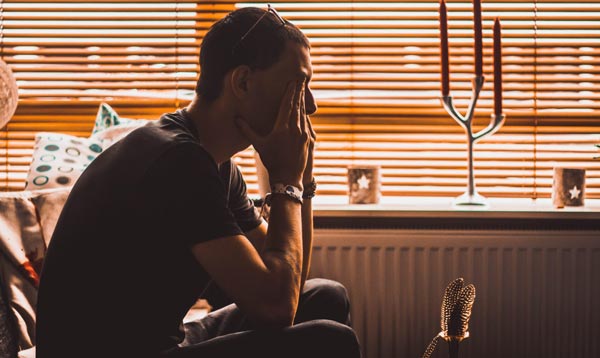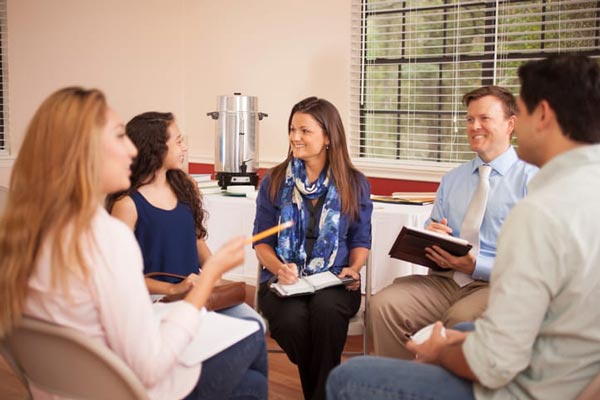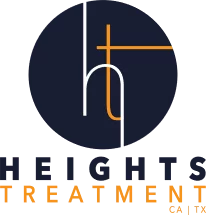Table of Contents
It’s hard to break an addiction, especially when your brain doesn’t want you to stop. Becoming addicted is easy. You consume a drug, drink alcohol, gamble or game, and win. These actions create a reaction in the brain that makes you feel good. When you win, or a substance like alcohol or opioids enters the brain, they signal a release of feel-good chemicals, also called neurotransmitters. When activated, neurotransmitters like dopamine flood the brain’s reward center.
The brain produces dopamine naturally, but unnatural sources, like drugs and alcohol, make it in much larger amounts than the brain could ever create on its own. Think 100 times more than natural production. At the moment, this overproduction makes you feel better than you ever have before. When this euphoria starts to fade, the brain notices and immediately convinces you to use more.
Over time, the brain adapts to unnatural sources triggering dopamine release. If you stop gaming, gambling, and misusing drugs or alcohol, the brain may produce withdrawal, both physical and psychological withdrawal symptoms. Breaking an addiction becomes even more difficult.
It can be done, however. There are ways you can break an addiction.
Recognize the Need for Help
If you could break an addiction alone, you would have already done so. It would help if you reached out to experts for help. There are multiple types of treatment programs from which to choose. Because there is no one-size-fits-all program, your treatment will be based on your addiction, medical and psychological needs, and personal preferences.
Below are examples of treatment options typically combined to help you break an addiction.
Medication Management
Some substances, like opiates and alcohol, produce severe withdrawal symptoms. Cravings can be so bad they lead to relapse. Doctors can prescribe medication to ease withdrawal symptoms so you can focus more on learning critical steps to breaking an addiction for good.
Talk to a Professional
It helps to talk to an expert who has a step-by-step guide on doing it the right way to break an addiction. Mental health and substance abuse counselors can give you this guideline and walk you through the process.
Cognitive-behavioral therapy is often used as a treatment method for overcoming addiction. It is a talk therapy that focuses on changing your thoughts to change your behaviors. It is also a method to help you set positive goals and steps to reach them.
Suppose you have past traumas that prevent you from moving forward. In that case, your counselor can help using treatment methods like trauma-focused cognitive behavioral therapy, eye movement desensitization, reprocessing, and neurofeedback.
You can learn practical coping skills if you also struggle with mental health issues like anxiety and depression.
Get Support From Your Peers
Getting support from peers means getting help from others who are in the process of breaking an addiction or have already done so successfully. You meet with peers regularly to discuss your addiction issues and receive and give feedback and encouragement. Studies have shown peer support helps prevent relapse.
Types of peer support services include residential programs, sober living homes, 12 Step facilitation groups, community-based groups, and outpatient facility programs.
Peer support groups help you make sober friends and give you a confidential, non-judgmental, safe space to work through your issues. They also help you improve your communication and socialization skills.
Get Help for Your Family
Addiction affects the whole family and anyone close to you. Likely, your family has played some role in promoting your addiction, even if they didn’t intend to. Some family members become enablers; some have addictions themselves.
To help you avoid relapsing, your family needs to learn how to support your recovery when you return home. They need to know how to set healthy boundaries, understand their role in recovery, and heal.
They can receive family therapy with your counselor or with one they choose. Attending 12 Step groups like Al-Anon and Alateen can help your family receive peer support, guidance, and encouragement.
Practice Mindfulness
In recent years, mindfulness is becoming a big part of addiction recovery. Researchers are finding the many benefits mindfulness offers the mind, body, and spirit. Mindfulness is being aware and being present in the moment. You are aware of your senses and can listen to your body and surroundings. Paying attention to your personal needs and meeting those needs can help you overcome urges to relapse.
There is no one specific mindfulness technique that works for everyone.
Popular methods include meditation or prayer, body scans, mindful breathing, yoga, exercise, and guided imagery. Activities like these help you be intentional and face what is happening at the moment. You learn to accept what is happening without judgment and without criticizing yourself. You become able to trust your instincts to help you move forward.
Try Alternative Therapies
Talking to peers and professionals is just one aspect of the recovery process. Alternative therapies are creative ways to help you reach broader levels of healing. Examples of alternative therapies include art and music therapy, which allow you to express yourself in ways other than talking. Someone else’s lyrics may explain your feelings at the moment. Color can be used to match your emotions.
With equine therapy, or horse-assisted therapy (HAT), you can build self-esteem, increase trust, and understand boundaries.
Additional alternative therapies include acupuncture, acupressure, biofeedback, hypnotherapy, and massage therapy.
Start Today
Some people think you must wait to hit rock bottom or until you are sick of being addicted to seeking help. This is not true. You can start reaching out for help at any time. You are aware of the risks associated with addiction. You may have even experienced legal issues, loss of relationships, financial hardships, and changes in your health related to your addiction. It is time to get the life you deserve- a long, happy, and healthy life free of addiction. We can help.
Sources:
- Carroll KM, Kiluk BD. Cognitive Behavioral Interventions for Alcohol and Drug Use Disorders: Through the Stage Model and Back Again. Psychol Addict Behav. 2017;31(8):847-861. doi:10.1037/adb0000311
- Tracy K, Wallace SP. Benefits of peer support groups in the treatment of addiction. Subst Abuse Rehabil. 2016;7:143-154. doi:10.2147/SAR.S81535
- Garland EL, Howard MO. Mindfulness-based treatment of addiction: current state of the field and envisioning the next wave of research. Addict Sci Clin Pract. 2018;13:14. doi:10.1186/s13722-018-0115-3
The Heights Treatment Editorial Guidelines
There is a vast amount of misinformation online especially as it relates to health & wellness. We have made it our mission at The Heights Treatment to provide accurate, medically sound content that has been medically reviewed by a doctorate level clinician so that you can trust the information contained within our website.





